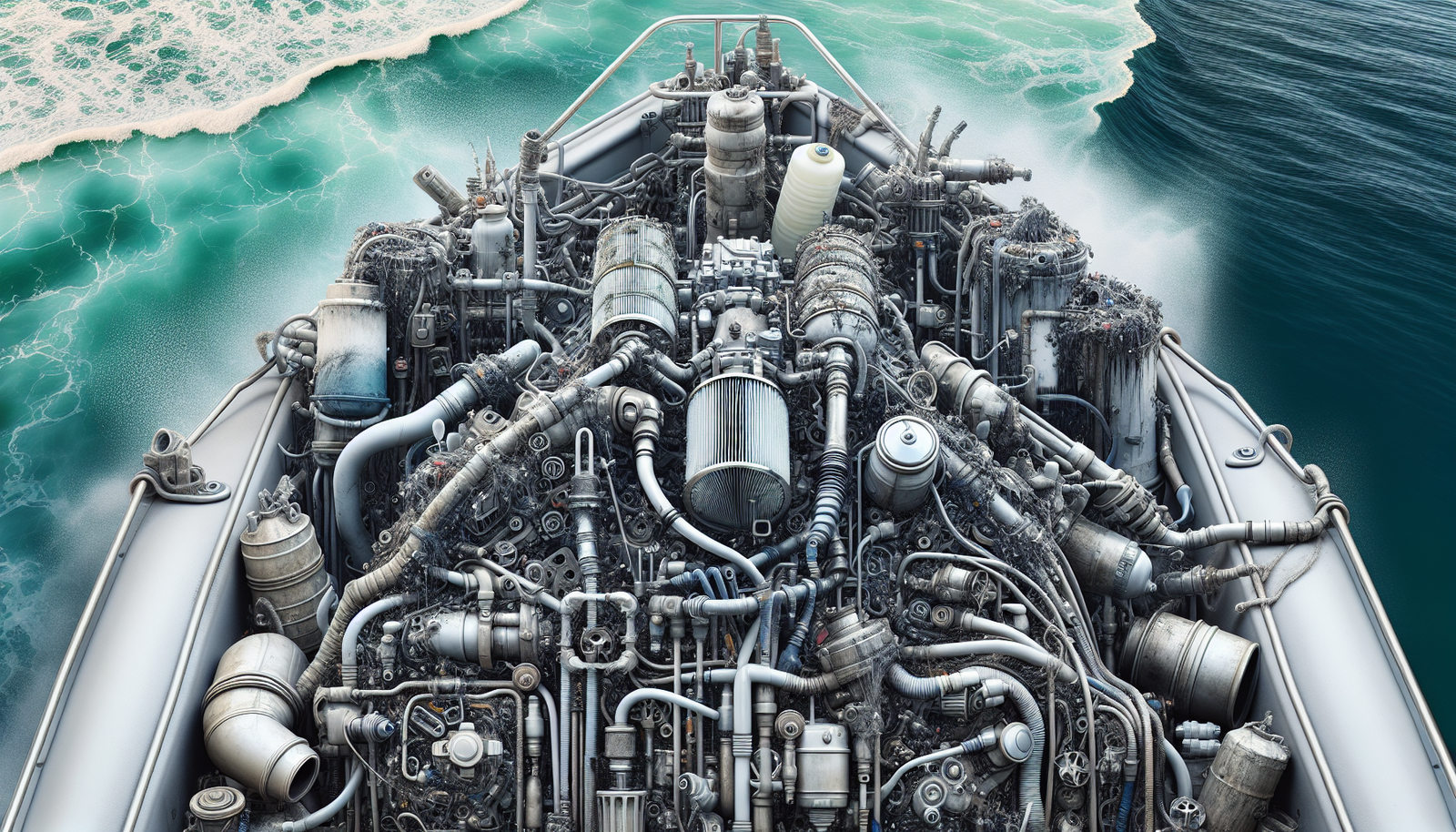You’re a boat owner now, and with that comes a host of new responsibilities. Among them is the critical task of properly disposing of boat engine waste, a practice that’s important, not just to adhere to local regulations, but also to keep our waterways clean. This article will guide you through each step so you can ensure you’re doing your part to protect the environment while enjoying your time on the water.
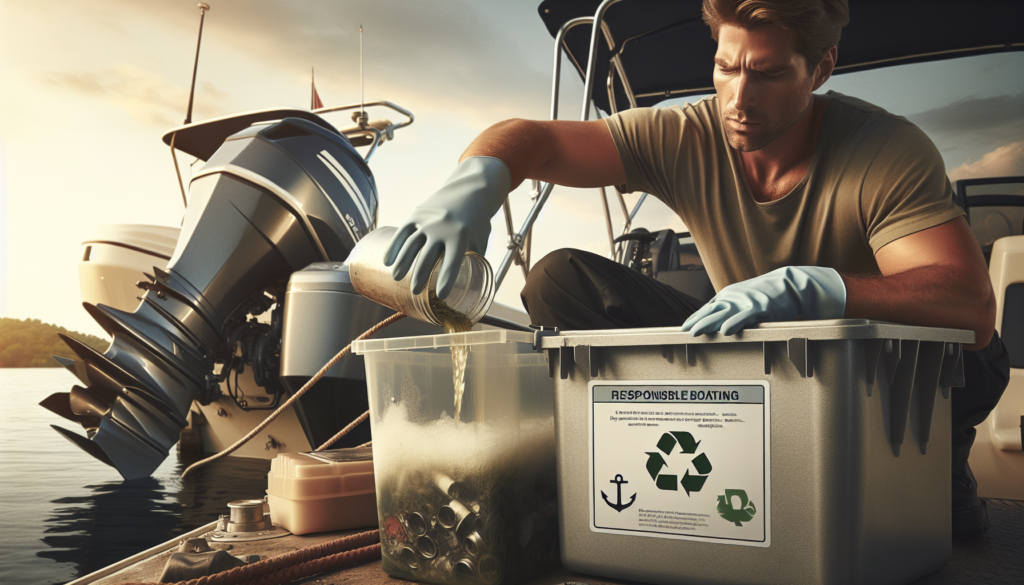
Understanding the Importance of Proper Boat Waste Disposal
One of the most crucial aspects of responsible boating practice is proper boat waste disposal. You might wonder why waste management on a boat is essential, but the truth is that disregarding this can have serious implications.
Impacts of improper disposal on environment
Imagine yourself cruising along a serene lake, leisurely sipping coffee and relishing the calming effect of the tranquil waters. But what if your boat’s engine waste is improperly disposed of and leaking into these same serene waters? It’s not only harmful but can be deadly to both aquatic and human life. Oil and other toxic compounds can suffocate fish, destroy plants and contaminate water, creating long-term ecological issues that are difficult to reverse.
Legal implications of non-compliance
Ignoring boat waste disposal might not just impact the environment negatively but could get you tangled up in legal trouble too. Regulations at both local and national levels have been put in place that mandate proper management and disposal of engine waste. Non-compliance could get you hefty fines or, in worst-case scenarios, legal suits and potential imprisonment.
Types of Boat Engine Waste
Understanding the types of waste your boat engine produces is key—it’s the first step to effective waste management. Let’s get to know them better.
Oil and lubricants
Oil and lubricants are integral in a boat’s engine function. However, they can be harmful when leaked or disposed of improperly. These substances can leach into water bodies, posing a serious threat to their ecosystems.
Bilge and ballast water
Bilge water typically consists of sea or freshwater, mixed with engine oils, lubricants, and other chemicals. Ballast water, on the other hand, is used to stabilize ships. It may carry invasive aquatic species capable of destroying local ecosystems if not treated properly before disposal.
Coolants
The coolant helps prevent the engine from overheating. However, different types of coolants contain ethylene glycol, which is toxic to humans and animals when ingested or absorbed through the skin.
Fluids from hydraulic systems
Hydraulic fluids are another waste source that can be harmful due to their corrosive and flammable properties.
Fuel and fuel residues
Fuel and fuel residues can effortlessly seep into the water, affecting its quality and life it supports.
Batteries and other hazardous materials
Batteries consist of dangerous chemicals like lead and acidic electrolytes, which can cause severe contamination if leaked.
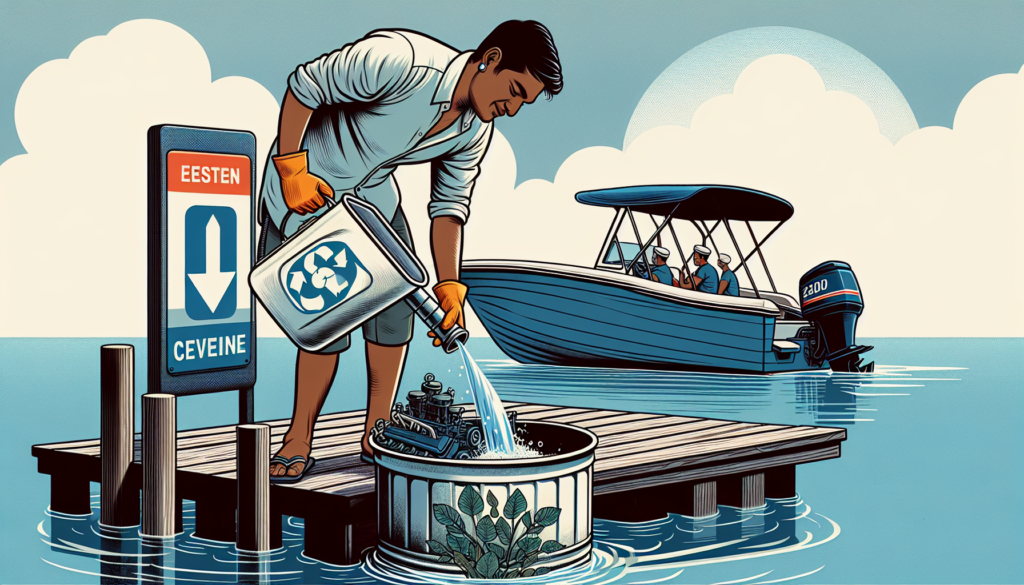
Segregation and Storage of Engine Waste
Now that you’re aware of the different waste types, it’s time to comprehend how to segregate and store this waste effectively.
Creating a plan for waste management
Planning is crucial to effective waste management. Keep track of the types of waste your boat engine produces and plan on how to handle, segregate, and eventually dispose of each type.
Understanding the need for segregation
Segregating waste based on its type is necessary to prevent harmful reactions between different substances and ease the disposal process.
Suitable containers for different waste types
Waste storage demands the right containers. Oil should be stored in airtight containers that prevent any leakage, while batteries should be kept in corrosion-resistant and leak-proof boxes.
Proper waste storage procedures
Follow proper procedures when storing waste. Ensure that containers are sealed tightly and stored in areas where they are safe from any potential spillage risks.
Safe and Effective Spill Prevention Strategies
Prevention, as they say, is always better than cure. The same applies to spillage prevention; by taking precautionary measures, you can avoid potential disasters.
Routine engine checks
Regular checks on your boat engine can help identify and address issues that may lead to leaks or spills.
Using absorbent pads and drip pans
These tools are highly effective at preventing spills during routine maintenance work and should always be within reach.
Proper fueling techniques
Prevent spills during refueling by following correct procedures and avoiding overfilling.
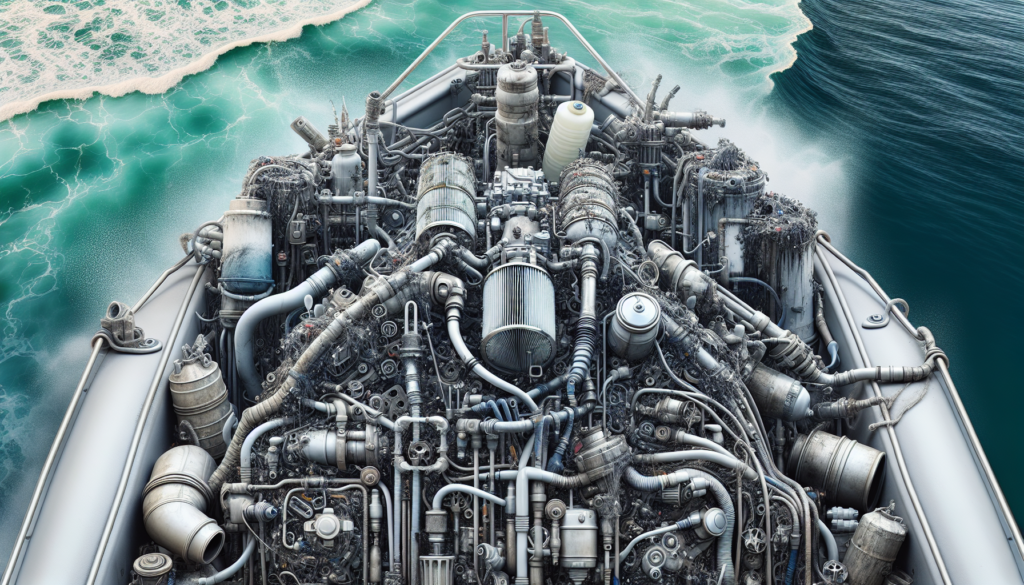
Boat Engine Oil Disposal
Getting rid of used engine oil might seem challenging, but it’s simpler than it appears.
Collecting used engine oil
Use a drain pan to collect the used oil. Once collected, transfer it into a tight-seal, leak-proof container for storage.
Storing used oil
When storing used oil, make sure it is kept separate from other wastes. Avoid mixing it with any other substances as this could complicate the recycling process.
Dealing with Bilge and Ballast Water
Treating and disposing of bilge and ballast water responsibly is equally important.
Understanding bilge water treatment
Bilge water generally undergoes treatment before being disposed of. The process involves separating oil and other pollutants from the water.
Disposing of ballast water responsibly
Ballast water must be treated to remove or neutralize any invasive marine species before it’s discharged.
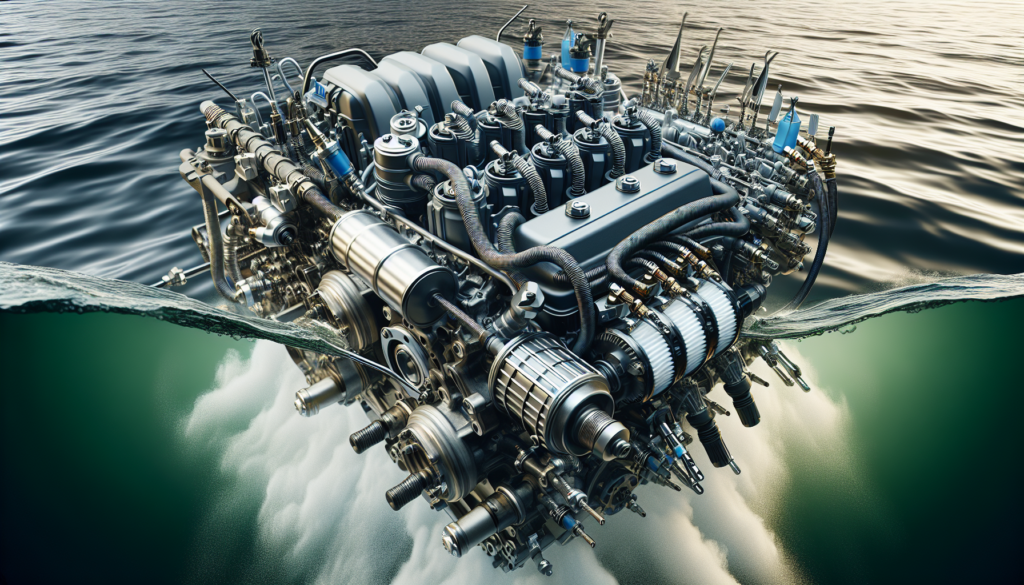
Handling of Hazardous Materials
Hazardous materials can cause damage to the environment and pose potential health risks to humans.
Identifying hazardous materials
It’s vital to identify potentially hazardous waste like batteries, antifreeze, or paint. Once these are identified, they can be handled with care and precaution.
Proper disposal methods for hazardous waste
Each type of hazardous waste requires a unique disposal method. Batteries, for instance, should be recycled, while old antifreeze should be taken to a hazardous waste facility.
Navigating Local Disposal Regulations
Different regions have different waste disposal regulations. Understand and respect these to avoid legal consequences.
Understanding local rules and guidelines
Investigate and become familiar with local laws regarding boat waste disposal. State or provincial regulations can provide specific direction on this matter.
Finding local disposal facilities
Identify the available waste disposal facilities in your area and learn about the waste types they handle.
Preparing for waste disposal
As part of your preparation, store all types of wastes securely in the right containers and transport safely.
Professional Waste Disposal Services
If handling and disposing of your boat waste seems overwhelming, professional waste disposal services could come to your rescue.
Understanding the role of professional services
These professionals offer comprehensive solutions, right from collection, handling, and disposal of boat waste to adhering to environmental standards and regulations.
Finding and choosing a service provider
Do thorough research to find a service provider best suited for your needs. Look at their service offerings, adherence to regulations, disposal methods, and customer reviews.
Maintaining an Environmentally Conscious Boating Practice
Remember, your boat is not just a vehicle; it’s a part of the larger ecosystem. An environmentally conscious boating practice is the way forward.
Regular maintenance of boat engines
Routine maintenance aids in early detection and prevention of leakages, ensuring your engine runs efficiently.
Adopting sustainable practices
Implement sustainable methodologies in your boating routine. Reduce the use of harmful substances, reuse and recycle waste when possible, and choose alternatives that are less harmful to the environment.
Educating others about proper waste disposal
Spread the word. Educating other boat owners about the importance and methods of proper waste disposal creates a larger impact, facilitates community responsibility and nurtures a healthier environment for everyone.
Proper boat engine waste disposal might seem challenging, but with awareness, planning and due diligence, you can ride those waves with ease, knowing you are protecting the waters for generations to come.

